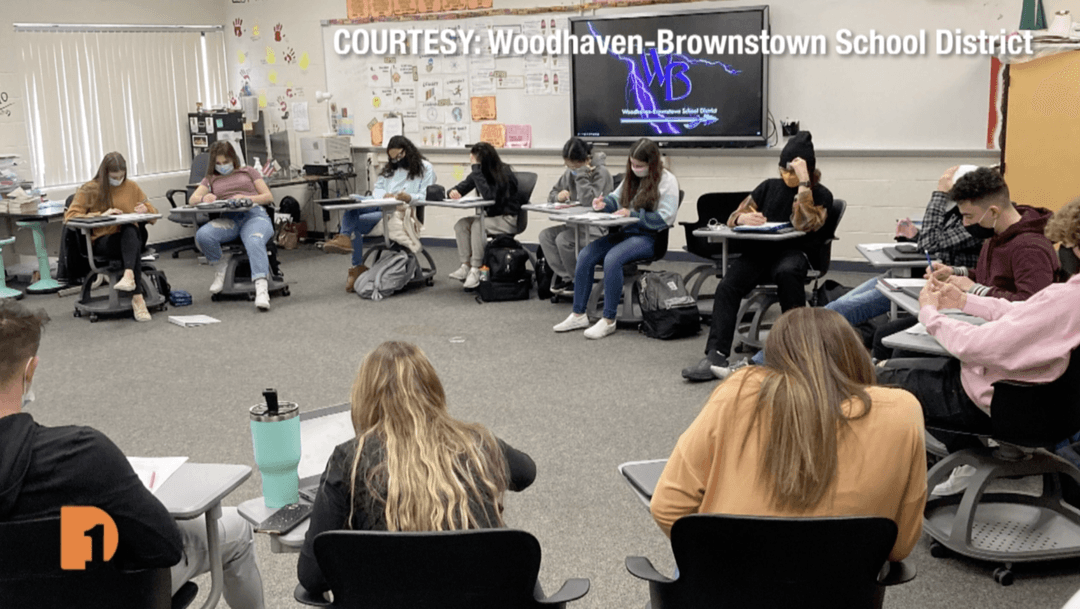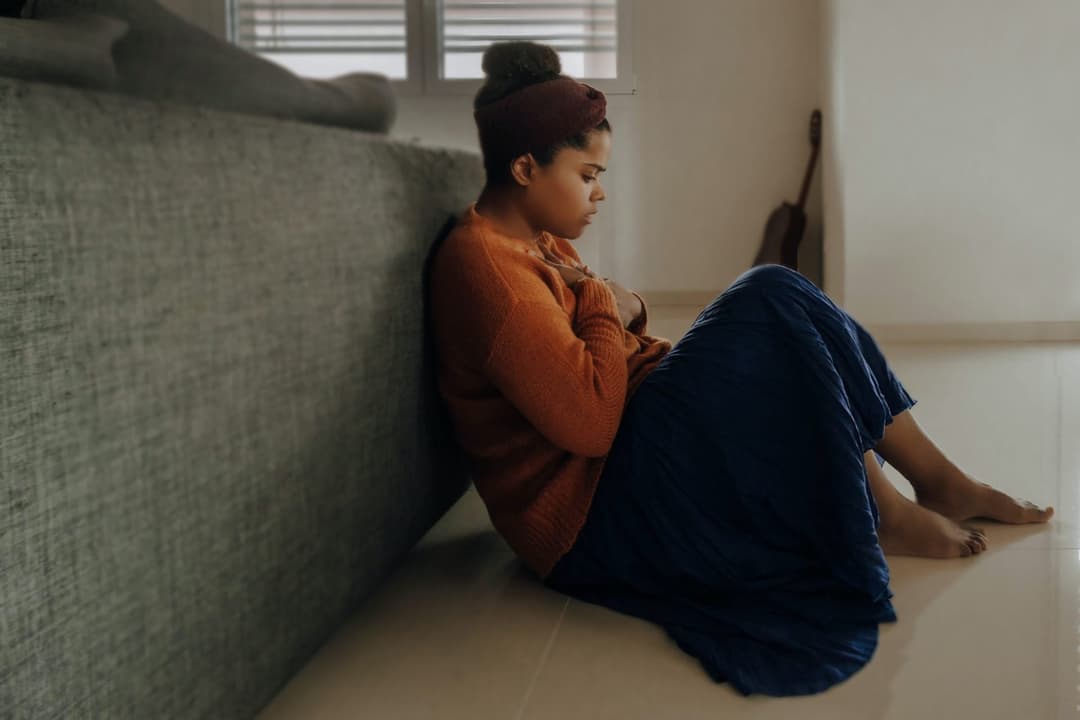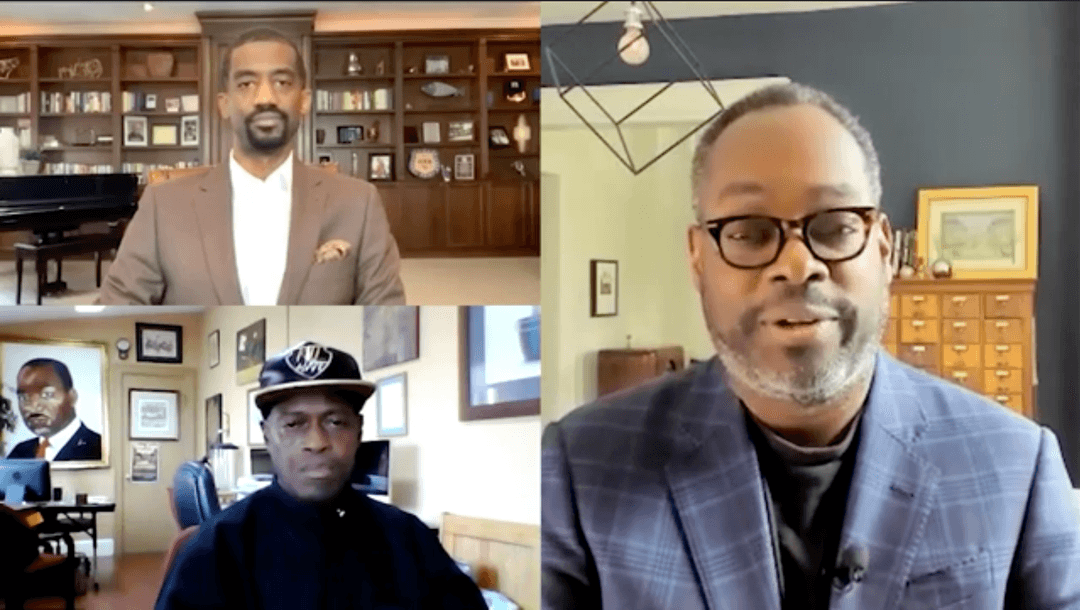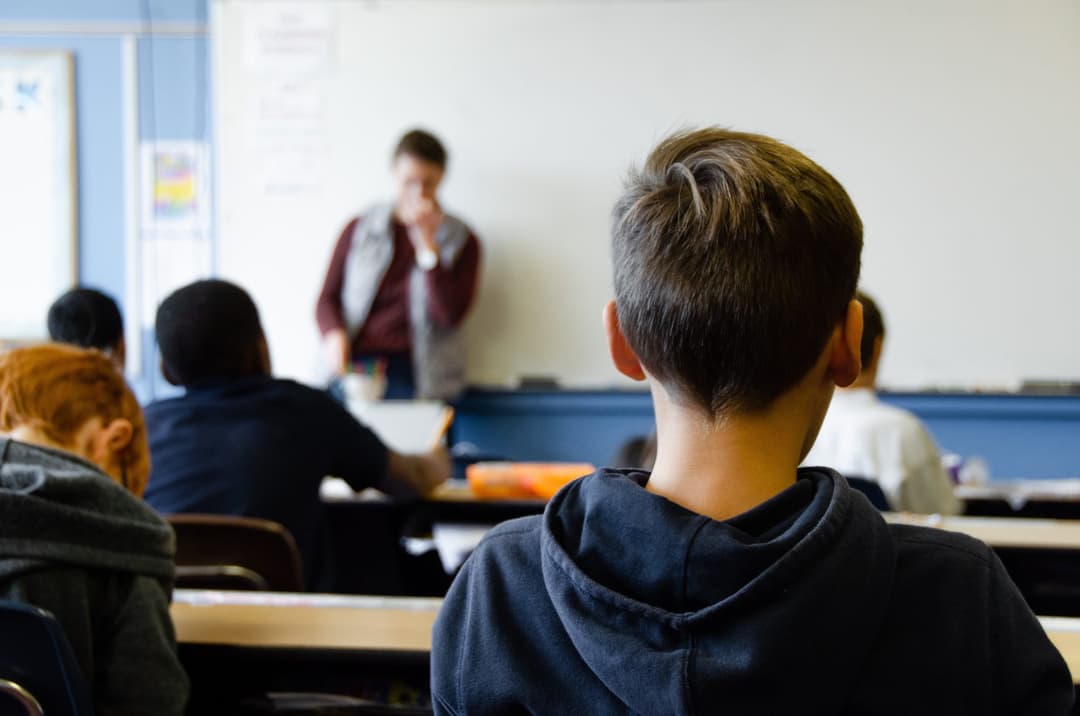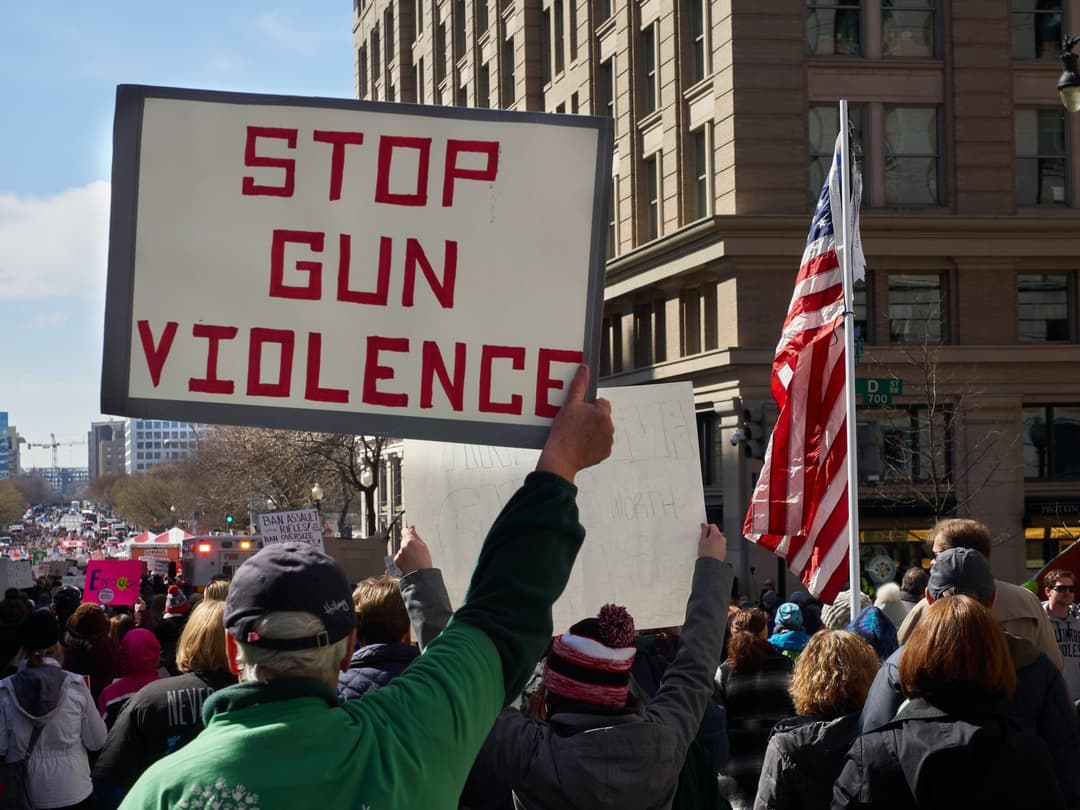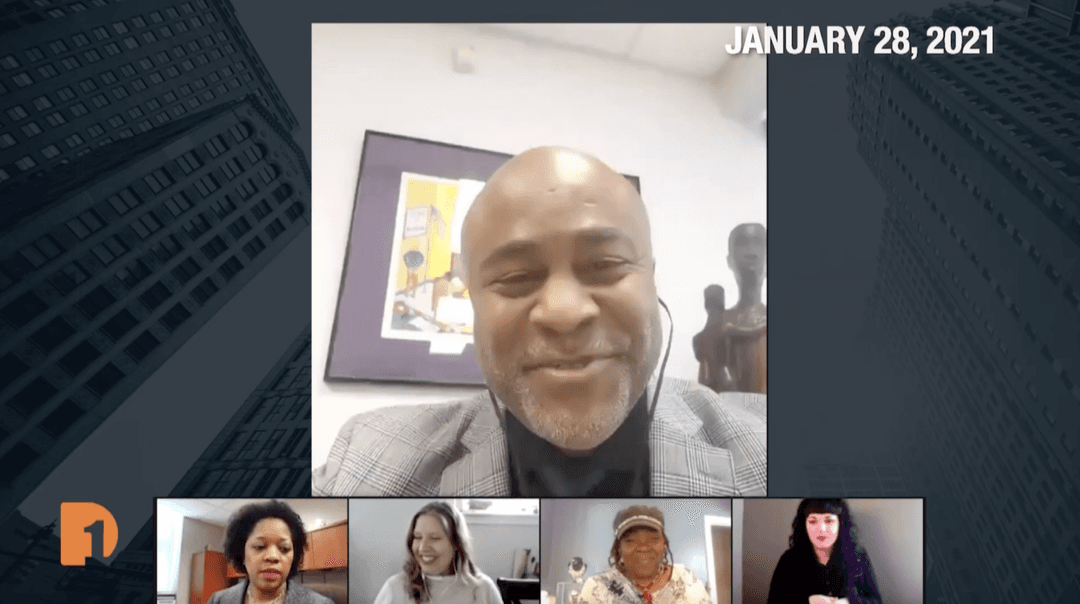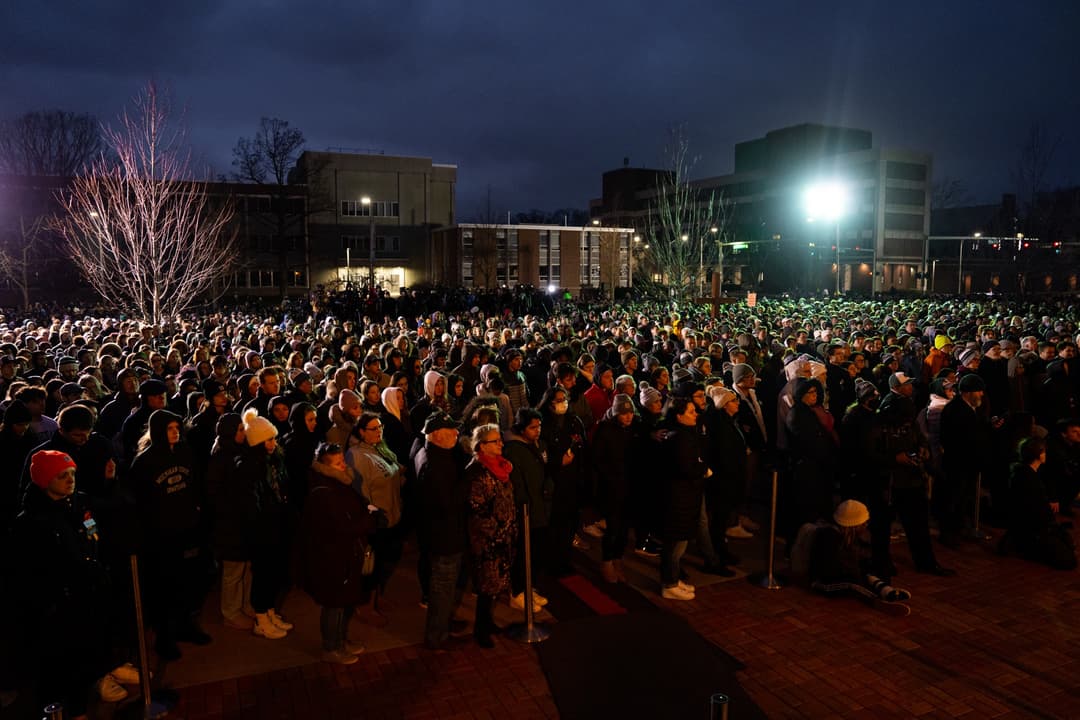In the Wake of Oxford, Schools Deal with Difficult Questions
Dec 9, 2021
The aftermath of the Oxford school shooting left ripple effects across Michigan communities this past week, closing more than a dozen schools and leaving students, parents and teachers fearful and having to cope with the fallout. Now, the Oxford community, and others, are working to acknowledge people’s fears, answer the tough questions and provide support for those coping. One Detroit’s Christy McDonald speaks with Karen Anthony, Early Childhood Mental Health Consultant for Oakland Schools, which is providing support across the county in the wake of the school shooting.
Full Transcript:
Christy McDonald, One Detroit, DPTV: Karen, I can only imagine some of the difficult questions that parents are now hearing and teachers are hearing from their young students after the aftermath in Oxford, which is really am I safe? Do we know that this will never happen to me?
Karen Anthony, Early Childhood Mental Health Consultant, Oakland Schools: So that’s a really good question, and I think that it’s difficult for us as adults to answer. But one of the things that I’ve really kind of moved adults toward thinking about is letting kids know they are safe, that there are adults, teachers, there are. There’s certainly presence of other kinds of, you know, government officials, police, firemen. There are so many people out there that are out there to keep us safe, but especially in the classroom. Teachers are trained in this and trained in knowing how to respond to any kind of crisis. And so the idea is, is that we should be letting kids know that school is a safe place to be and that it’s OK to be there.
Christy McDonald: In your work now with Oakland schools, you are in Oxford, and you are helping the teachers who deal with our youngest students and figuring out how to move through this and how to talk about it. What are you telling them and what are some of the things then I guess as parents that we can take away about how to talk to our kids?
Karen Anthony: So it’s interesting because I think we have to think about the different age groups and so different kids at different ages will understand different things. Very, very young children, so those that are infants and toddlers, probably have no idea what’s been going on themselves. However, they do react to the adults around them. So when there are adults around them that are having difficulty managing this, it is going to-the kids will feel it. They will physically feel it from the adults. So we have to really do our best. I continue to tell adults self-care is really not about self-care, it’s about you being in a good place to care for the kids. So we-I kind of push that a little bit with the infant/toddler teachers. Teachers of preschool kids, so those threes and fours. It’s again a whole different level of understanding.
They may have heard things and they may have questions. So the one thing that I’ve been really trying to get teachers to understand and parents to understand, just give them an answer to their question. Keep it short, keep it sweet and small-and small, because oftentimes that-they just wanted a-an answer and then they move on. And that’s kind of how three- and four-year-olds behave. As you move into elementary school, there’s going to be a lot more understanding of what has occurred. And so again, its adults being present with kids listening, spending a lot of time listening and hearing what kids have to say and kind of again, going back to letting them know they’re safe. We are going to take care of them. And that’s what they need so that they can learn. If they don’t feel safe, they can’t learn.
Christy McDonald: You know, and when you kind of move up the chain and you’re working with older kids too. And I have three teenagers, a middle school and two high schoolers. Sometimes it’s also not solving it for them and just sitting and being with the uncomfortable grief, anxiety and fear of what’s happening and saying, ‘yeah, this is how it feels when something like this happens 10 minutes down the road from you.’
Karen Anthony: And-and what’s interesting with that and one of the questions that had come up with a group of teachers that I was talking to that have kids in high school, they were asking me, should I make sure that my kid gets into some kind of mental health counseling? And what I said was, you know, does it sound like that’s what they need? So kind of listen very carefully, but also to know what I think will be happening more of, kids especially in high school–they don’t want to talk to their parents. They really want to be with their friends in most cases. So maybe it’s thinking about having them get the friends together, having an adult nearby, whether that’s a professional or a parent. But at least letting the kids lean on each other and share their experiences with one another. That’s really important in this they, in high school, they really need each other
Christy McDonald: And they’re reaching out a lot and talking on social media, which has also been a component of sometimes stoking the fear, sometimes stoking that you’re not quite sure what the right information is. But I guess, Karen, talk to me a little bit about the importance of that connection and the-the exchange, I guess, of thoughts with each other like that.
Karen Anthony: You know, I-in a sense, it is good. This is one of the avenues that kids connect. This is how they do. You know, I feel like I’m old because- certainly wasn’t around years ago and so that’s how they’re connecting, right? So this is the way that they are able to have conversations, they don’t pick up the phone, but they-they-they have their conversations through social media. And again, that’s OK. But I want an adult to kind of have a clear mind to be checking in with them. I think that’s important because rumors can turn into something worse, and that’s what we want to make sure isn’t happening. We don’t want kids to hear false information. So, so one kid might hear something, and you know, it can spin out of control. And we just want to make sure this is an adult checking in to make sure that kids are safe.
Christy McDonald: We talk so much about safety drills and school shootings have been a part of our lives here in America for 20 years. But when it happens, it’s-you think about how are we prepared? And I guess, how would you explain the mental health component with Oakland Schools and being able to reach out to a district like Oxford and work with them now when they’ve had to face really the unthinkable?
Karen Anthony: So one of the things that we’re doing here is we’re really trying to be interconnected. So we do have kind of one person who’s kind of taken and streamlined a lot of the services so that we are kind of coordinated in what we’re doing. And so us at the ISD, we are collaborating with local mental health agencies to get support for our programs. When children return to school, there will be mental health professionals in our school, in those schools, and also there will be people from Oakland Schools who are there partnering with the mental health agencies. We want to be part of that process. So that’s-that’s kind of the process that we’re hoping to go through. I’m not sure necessarily how much children will actually reach out to those mental health professionals, however sometimes it’s just knowing that they’re there makes you feel better.
Christy McDonald: But what is the long form thing that we need to think about as parents for our children and to talk to them about things that may or may not happen in life?
Karen Anthony: I think as we move through this, this is going to be a process, this is going to take some time here. I think it’s-I don’t-I don’t want anybody to think that this is going to end very quickly. I really feel like that re-traumatization can happen. I think we saw it on Friday night at the vigil when we saw some kind of emergency that happened, and people started to run and it really comes to that— that’s a trauma response.
Christy McDonald: Can you explain that? Can you explain re-traumatization?
Karen Anthony: So it’s the idea that once we’ve been in a traumatic situation that truly our entire body feels it. Our entire body, we want to separate our brain from our body, we can’t. It’s all part of the same system. So what-you feel trauma through your whole body. And so what happens is when you start to be-go into that calm state again and you’re feeling better-if-something can trigger it. And again, in this situation, it was, you know, somebody fainting, I think, in the crowd that someone screamed. And as soon as they heard the scream, your mind goes to remembering what that scream was like in the worst-case scenario. And they, and you, just your body reacts.
Your body is going to move into fight, flight, or freeze. And so people start running, you know, some people are ready to fight. Some people just freeze and shut down. So that’s I think a big piece, too, is that we have to think about keeping as much calm as we can for kids to give them a chance to recover from this. It’s going to take time.
Christy McDonald: What else should we be thinking about as we-as we move forward as a community?
Karen Anthony: I’m loving… when I was in Oxford this morning, I was just so impressed with the outpouring of so many local, even just restaurants saying ‘do you need lunch? We’ll send you lunch.’ I mean, like that was just beautiful to think that-that-that people really are trying to come together. I think people don’t know exactly what to do. Feeling okay with silence is okay. I think for the adults, I really want them to know to take care of themselves so that they can take care of kids because these kids are depending on us. And I also want you to-kind of everyone in this situation needs to really look at how long this is going on. So when you start to see trauma responses and they’re going on for more than four to six weeks and they’re not getting better, definitely seek a mental health professional. But I think as a community, what we’re going to see is a lot more healing and a lot more coming together and hopefully a lot more feeling safe. But it’s going to again, it’s going to take time, and I think we have to allow ourselves that time.
Subscribe to One Detroit’s YouTube Channel & Don’t miss One Detroit Mondays and Thursdays at 7:30 p.m. on Detroit PBS, WTVS-Channel 56.
Catch the daily conversations on our website, Facebook, Twitter @DPTVOneDetroit, and Instagram @One.Detroit
View Past Episodes >
Watch One Detroit every Monday and Thursday at 7:30 p.m. ET on Detroit Public TV on Detroit Public TV, WTVS-Channel 56.
Stay Connected
Subscribe to One Detroit’s YouTube Channel and don’t miss One Detroit on Thursdays at 7:30 p.m. and Sundays at 9 a.m. on Detroit PBS, WTVS-Channel 56.
Catch the daily conversations on our website, Facebook, Twitter @OneDetroit_PBS, and Instagram @One.Detroit
Related Posts
Leave a Reply
Your email address will not be published. Required fields are marked*


